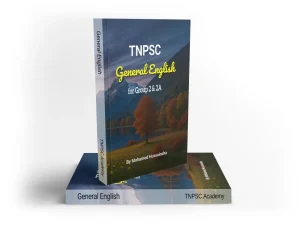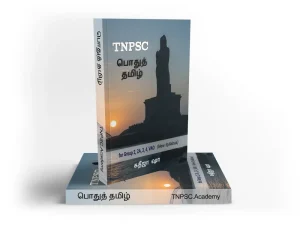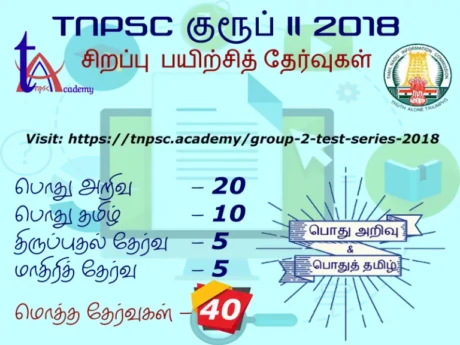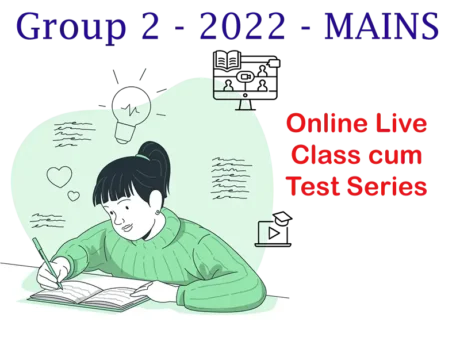TNPSC Books
-
TNPSC General English Book - for Group 2 & 2A
Rated 5.00 out of 5₹1,000.00Original price was: ₹1,000.00.₹850.00Current price is: ₹850.00. -
TNPSC பொதுத் தமிழ் Book - for Group 2, 2A, 3, 4 & VAO
₹1,000.00Original price was: ₹1,000.00.₹850.00Current price is: ₹850.00.
Group 1 Courses
Group 1 | Postal and Online Test Series | 2022
₹3,200.00Original price was: ₹3,200.00.₹2,800.00Current price is: ₹2,800.00. 88TNPSC Group 1 - Test Series - 2019
4.7₹3,500.00Original price was: ₹3,500.00.₹2,800.00Current price is: ₹2,800.00. 542
Group 2 & 2A Courses
TNPSC Group 2 and 2A - Test Series - 2019 - தமிழ்
₹2,400.00Original price was: ₹2,400.00.₹1,800.00Current price is: ₹1,800.00. 175TNPSC Group 2 and 2A - Test Series - 2019
₹2,400.00Original price was: ₹2,400.00.₹1,800.00Current price is: ₹1,800.00. 527














www.tnpsc.academy – TNPSC Current Affairs October 09, 2020 (09/10/2020)
Topic: International Events, Places in News
Arctic Amplification
A team of scientists have identified iodic acid (HIO3) as a novel driver of new aerosol particle formation in the Arctic which is responsible for Arctic Amplification or Arctic Warming. Presence of Iodic acid in the region had not been observed previously.
These aerosol particles influence the formation of clouds. As these clouds reflect solar radiation (known as Aerosol Radiative Forcing) but also retain heat on the Earth’s surface, they have an influence on the warming of the Arctic.
Key facts:
Over the past 30 years, the Arctic has warmed at roughly twice the rate as the entire globe, a phenomenon known as Arctic amplification. This means that global warming and climate change are impacting the Arctic more than the rest of the world.
Global temperatures from 2000–2009 were on average about 0.6°C higher than they were from 1951–1980. The Arctic, however, was about 2°C warmer. Scientists first started to see evidence of changes in Arctic climate in the 1980s. Since then, the changes have become much more pronounced.
Reasons:
Change in Albedo:
Albedo is a measure of how much light that hits a surface is reflected without being absorbed.
When bright and reflective ice (with more albedo) melts, it gives way to a darker ocean (lowering albedo); this amplifies the warming trend because the ocean surface absorbs more heat from the Sun than the surface of snow and ice.
Way Forward:
The only way to deal with Arctic amplification is by halting global warming as a whole. The Paris Agreement provides a clear vision of limiting global warming.
Cutting fossil fuel emissions, conservation of forests and afforestation and carbon sequestration are some of the ways to bring down the global temperature levels.
_
Topic: Latest Diary of Events
World Space Week – 4th-10th October
World Space Week is an international celebration of science and technology and their contribution to the betterment of the human condition. It is coordinated by the United Nations with the support of the World Space Week Association (WSWA), a non-profit organisation.
The United Nations General Assembly (UNGA) declared in 1999 that World Space Week would be held each year from 4th-10th October. These dates commemorate two events:
4th October 1957: Launch of the first human-made Earth satellite, Sputnik 1, thus opening the way for space exploration.
10th October 1967: The signing of the Outer Space Treaty (Treaty on Principles Governing the Activities of States in the Exploration and Peaceful Uses of Outer Space including the Moon and other celestial bodies).
_
Topic: Awards and Honours, Persons in News
Nobel Prize in Literature 2020
The Nobel Prize in Literature 2020 has been awarded to the USA poet Louise Glück “for her unmistakable poetic voice that with austere beauty makes individual existence universal.”
Established by Alfred Nobel in 1895, the Nobel Prize in Literature is one of six awards that also span physics, chemistry, medicine or physiology, peace and economic sciences. For 2020, Nobel Prizes for Chemistry, Physics and Medicine have already been announced. The Nobel Prize comes with a medal and a prize sum of 10 million Swedish kronor.
Key facts:
Glück, born 1943 in New York, lives in Massachusetts and is also professor of English at Yale University. Her poetry focuses on the painful reality of being human, dealing with themes such as death, childhood, and family life.
She is the fourth woman to win the prize for literature since 2010, and only the 16th since the Nobel prizes were first awarded in 1901. The last American to win was Bob Dylan in 2016.
Glück won the Pulitzer Prize in 1993 for her collection The Wild Iris and the National Book Award in 2014.
_
Topic: New Economic Policies in India
New Development Bank
New Development Bank has approved infrastructure projects worth 741 million dollars in India.
About the New Development Bank:
It is a multilateral development bank operated by the BRICS states (Brazil, Russia, India, China and South Africa). It was agreed to by BRICS leaders at the 5th BRICS summit held in Durban, South Africa in 2013. It was established in 2014, at the 6th BRICS Summit at Fortaleza, Brazil.
The bank is set up to foster greater financial and development cooperation among the five emerging markets. Headquartered in Shanghai, China.
In 2018, the NDB received observer status in the United Nations General Assembly, establishing a firm basis for active and fruitful cooperation with the UN.
Roles and functions:
The Bank will mobilise resources for infrastructure and sustainable development projects in BRICS and other emerging economies and developing countries, to supplement existing efforts of multilateral and regional financial institutions for global growth and development.
_
Topic: General Administration, Profile of States
Gyan Circle Ventures
Union Education Minister Shri Ramesh Pokhriyal ‘Nishank virtually inaugurates Gyan Circle Ventures.
What are Gyan Circle Ventures?
They are Technology Business Incubators (TBI). Funded by the Ministry of Information Technology (MeitY). Led by the Indian Institute of Information Technology, Sri City (Chittoor), Andhra Pradesh.
Key features:
Gyan Circle Ventures would function as a Technology Incubation and Development of Entrepreneurs (TIDE 2.0) incubation center. They will serve as a hub for innovation and startups by providing support, in various phases, via investments, infrastructure and mentoring.
_
Topic: General Administration
India test fires RUDRAM Anti-Radiation Missile successfully
India test fired the new generation anti-radiation missile called Rudram 1. The Missile has been generated to kill enemy radar.
Key facts:
The Rudram missile can be launched from Sukhoi 30MKI fighter jets. It has speed of 2 mach. This is twice the speed of the sound.
The weapon was developed by Defence research and development organisation. It was tested in the Balasore test range located off the coast of Odisha in Bay of Bengal.
The Missile can be launched from height of 500 metres. It can identify heat radiation emitting targets within the range of 250 kilometres. The missile launch was tracked by electro optical tracking system. Rudram is the first indigenous anti-radiation missile.
_
Topic: Latest Diary of Events
Sagar Kavach Coastal Security Exercise and Matla Abhiyan Exercise
The Indian Navy conducted a two-day coastal security exercise called “Sagar Kavach”. The exercise was conducted by Indian Navy along with Indian Coastal Guard. It is a half-yearly exercise to check coastal security mechanism and validate Standard Operating Procedure.
Key facts:
Around 50 patrol crafts of the Coast Guard and 20 ships of the Indian Navy participated in the exercise. Apart from the Indian Navy and the Coastal Guard, the other forces that participated in the exercise are as follows:
Intelligence Bureau
Central Industrial Security Force
Marine Enforcement Wing
Fisheries Department
Cochin Port
Coastal District Administration
Coast Guard
During the exercise, the participants were divided into two teams red and blue. The red team simulated the terrorist activities attempting to infiltrate coastal areas. The Blue team carried out Coastal Security Surveillance to neutralise the infiltration attempts.
The exercise was conducted along the coastal areas of Karnataka, Kerala and Lakshadweep.
Matla Abhiyan Exercise:
Matla Abhiyan Exercise was conducted. The Matla Abhiyan Exercise is a five day coastal security exercise that was conducted by the Indian Navy in Matla river. Two Indian boats undertook the patrol in the Sunderban Delta during the exercise.
The sailors interacted with the local fishermen spreading awareness about the coastal security, marine police stations.
Matla river forms a wide estuary in and around the Sundarbans.
_
Topic: Profile of States
AAI’s first 100% solar-powered airport
Puducherry airport has become the Airports Authority of India’s (AAI) first entirely solar-powered airport in the country with the commissioning of 500KWp ground-mounted solar power plant at a cost of Rs 2.8 crore.
Key facts:
The annual electrical energy consumption of the airport on an average is 0.72 million units. The solar power plant, which has 1,540 highly efficient polycrystalline solar PV panels, generates an average 2,000 units of energy per day.
The plant will meet the airport’s day-to-day energy needs. The airport will save power bill of Rs 10 lakh per month with the commissioning of the solar power plant.
The plant will reduce carbon emission footprint by 6,570 metric tonne, which is equivalent to planting 32,850 trees.
_
Topic: Awards and Honours
Global ‘Covid Crusader Award-2020
Iqbal Singh Chahal, Municipal Commissioner of the Municipal Corporation of Greater Mumbai was honoured with Global ‘Covid Crusader Award-2020.
Key facts:
Iqbal Singh Chahal has become the first Indian bureaucrat to be recognised and receive global acknowledgment for his contribution in controlling the novel coronavirus infection in India’s financial capital and for working to ‘flatten the curve’ in congested areas of the city, including Asia’s biggest slum Dharavi.
_
Topic: Profile of States
Alert over Congo fever
Maharashtra’s Palghar district issued a ‘Congo fever’ alert after the virus was found in some of the neighbouring districts in Gujarat. The Crimean-Congo hemorrhagic fever (CCHF) is caused by infection with a tick-borne virus (Nairovirus) in the family Bunyaviridae.
The disease was first characterized in the Crimea in 1944 and was given the name Crimean hemorrhagic fever. The disease was discovered to be the cause of illness in the Congo in 1969. The Congo fever is transmitted to humans to through contact with the blood of infected animals and by eating the meat of infected animals.
_
Topic: Profile of States
GI Tag for chilli of Sikkim
The red cherry pepper chilli of Sikkim which is locally known as the “Dalle Khursani” got the geographical indication tag.
It is considered as one of the hottest chillies in the world. It is to be mentioned that the largest manufacturer of Dalle Khursani products is the state government-owned Sikkim Supreme.
_
Topic: Awards and Honours
Right Livelihood Award 2020
The Right Livelihood Award Foundation has announced the four winners of the 2020 Right Livelihood Award 2020. It is also known as the alternative Nobel Prize of Stockholm.
The four winners shared the 2020 award for their contribution towards equality, democracy, justice and freedom.
Ales Bialiatski of Belarus,
Nasrin Sotoudeh of Iran,
Bryan Stevenson of the United States and
Lottie Cunningham Wren of Nicaragua.